Write Us
We are just a call away
[ LET’S TALK AI ]
X
Discover AI-
Powered Solutions
Get ready to explore cutting-edge AI technologies that can transform your workflow!

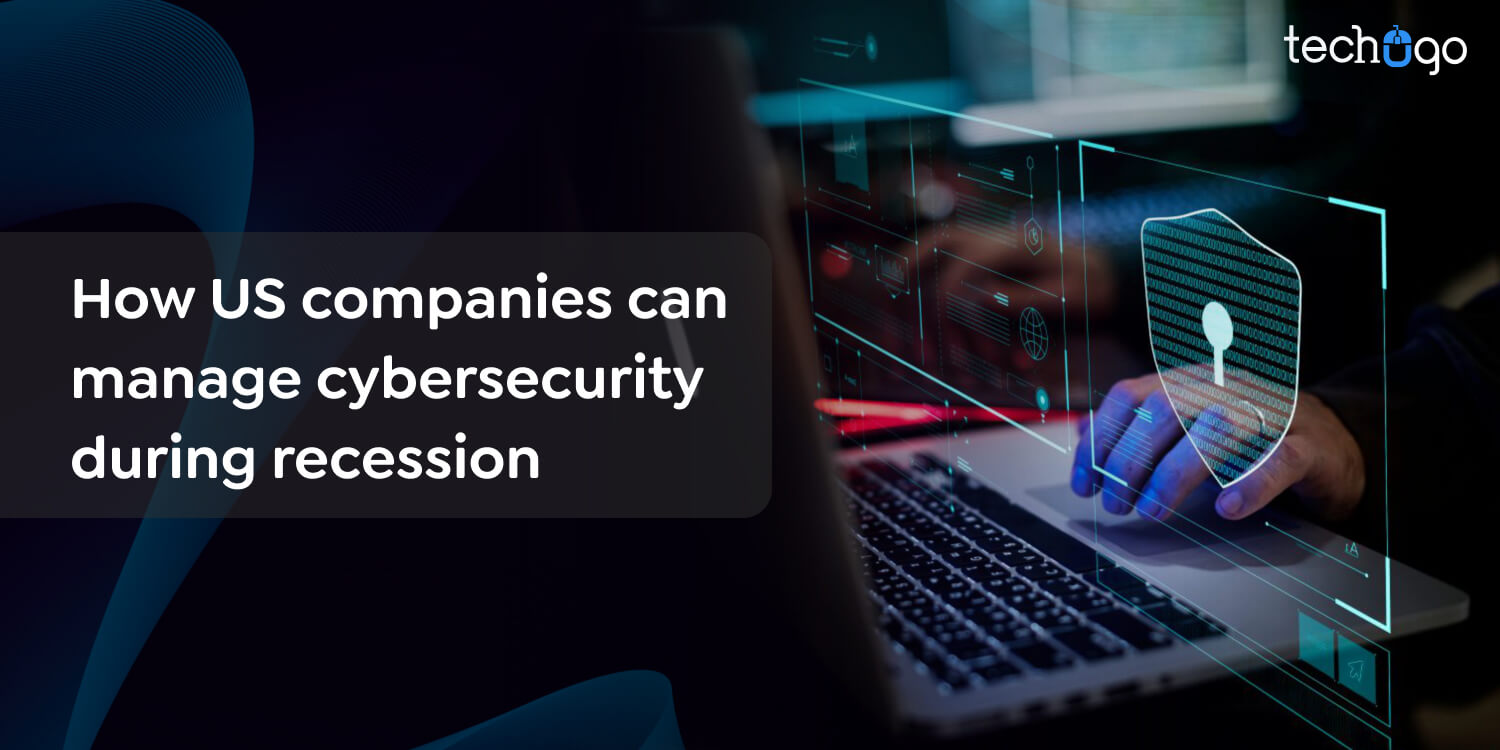
Security has become an essential issue for companies and organizations in the digital age. During a downturn, cybersecurity threats are expected to increase. Due to the economic slump, US companies face unprecedented financial pressures. Recessions typically lead to more cyber attacks, making it crucial to prioritize security and compliance during such times. As a result, leaders and managers must find ways to prepare their companies to weather the current downturn.
After years of experimentation and failure, US businesses have gained valuable knowledge on managing economic downturns efficiently. One of the most crucial aspects for any business is staying up to date with the latest security trends and ensuring that the proper cybersecurity procedures and cloud consulting services are in place to protect assets and data from potential cyberattacks during this period of financial instability.
Focusing on compliance and the role of IT suppliers in safeguarding digital assets can give businesses peace of mind during economic downturns. Companies should seek out trustworthy IT and cloud consultancy service providers who can help them identify the best cybersecurity practices and requirements.
This blog will cover essential details on managing risk, securing your business, and staying updated on the latest innovative trends in cybercrime and cybersecurity during a recession.
In the aftermath of recessions, businesses often trim costs across various industries. This could mean reducing staff, cutting marketing expenditures, or lowering production. Many companies make the mistake of slashing their cybersecurity budgets, leaving them vulnerable to cybercriminals.
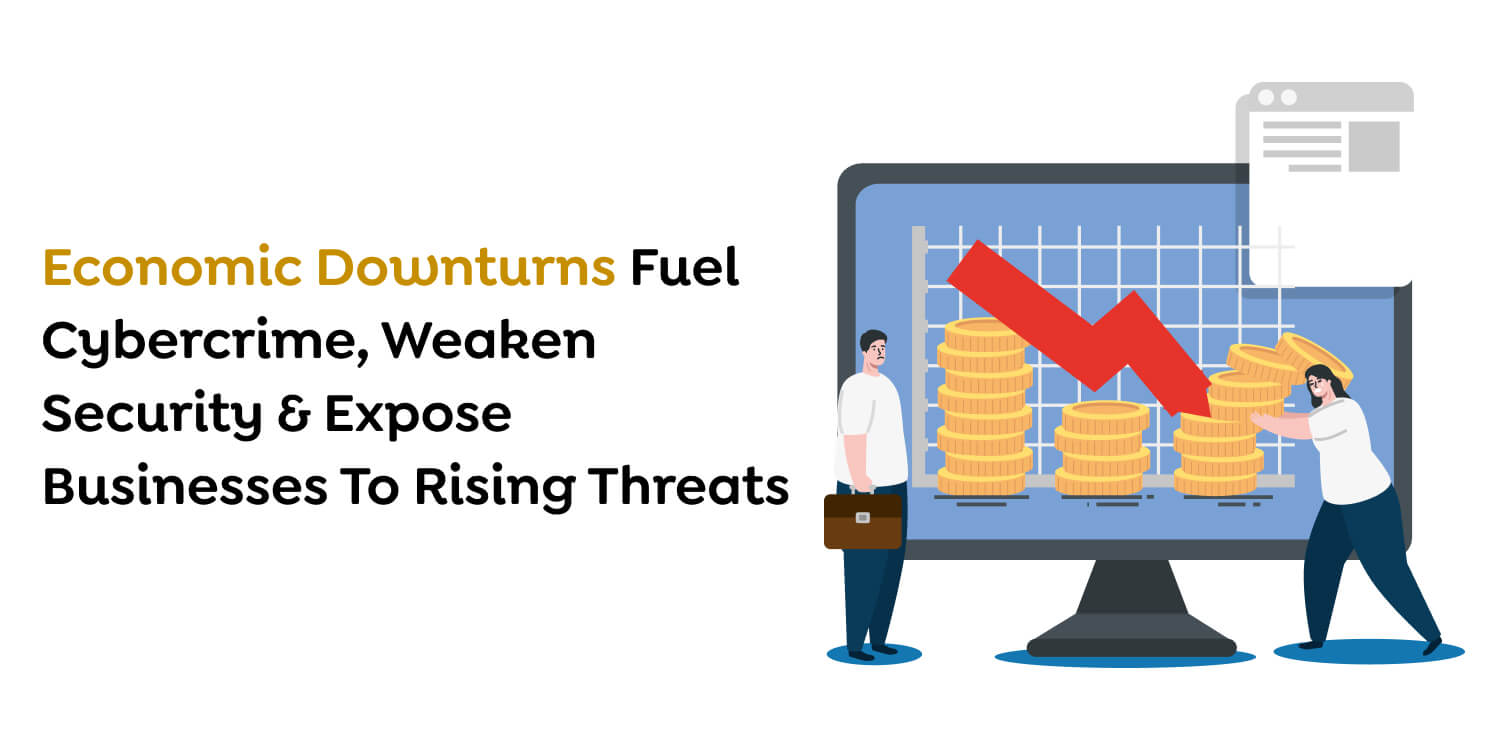
Let’s explore why cybersecurity issues tend to increase during economic downturns.
Recessions often lead to higher unemployment and unstable financial conditions, which may drive some individuals to engage in criminal activities, such as cybercrime, to earn money. For those who can breach system security, the opportunity to profit from cyberattacks becomes even more appealing during tough economic times.
Ransomware attacks, for example, can be highly lucrative. Cybercriminals may target companies facing financial difficulties, believing they are more likely to pay a ransom to avoid losses and disruptions quickly. Fraud and phishing schemes are also becoming more common, as financially stressed individuals and businesses are more susceptible to scams promising aid or financial relief.
During global economic downturns, many businesses face budget cuts that often lead to reduced investment in cybersecurity. This builds an opportunity for cybercriminals to exploit, as companies become more vulnerable due to insecure security practices, fewer IT personnel, or delayed investments in security improvements.
Moreover, as businesses struggle to maintain profitability, they may be forced to make hasty decisions about their digital infrastructure, which can introduce security flaws. Organizations that rush to implement innovative technologies like cloud services or remote work solutions without thorough security checks risk exposing themselves to cyberattacks.
Cybercriminals are adept at exploiting uncertainty and crises, and economic recessions present a prime opportunity. During a recession, companies may introduce new online services, such as payment systems, payment methods, or customer portals, to stay afloat, often under pressure and without adequate security testing. Criminals can quickly identify and exploit these weaknesses.
Additionally, social engineering attacks tend to be more successful during economic crises. People are more vulnerable to scams promising quick financial relief, job offers, or government aid. False job advertisements and fraud schemes are rampant, preying on the fears and anxieties of individuals and businesses.
During the recession, nations may attempt cyberwarfare and other attacks, using technology to target weak points in their economies and further undermine their operational framework.
Several US industries are particularly susceptible to cyberattacks from nation-states during economic downturns. Businesses in the private sector are at risk because they maintain a steady supply of capital. In contrast, the public sector is vulnerable because of the critical infrastructure it provides. Business owners should remain cautious, especially as the war between Ukraine and Russia continues to escalate nation-state risks.
Companies often reduce or eliminate funding for developing and adopting the latest cybersecurity technologies and cloud consulting services during economic downturns. However, cybercriminals’ attack strategies continue to evolve, exploiting weak points in prevention and response capabilities to cause significant losses.
As a top mobile app development company in USA, we discuss some key tips regarding the importance of cybersecurity in the business world. This importance cannot be overstated, even during a recession.
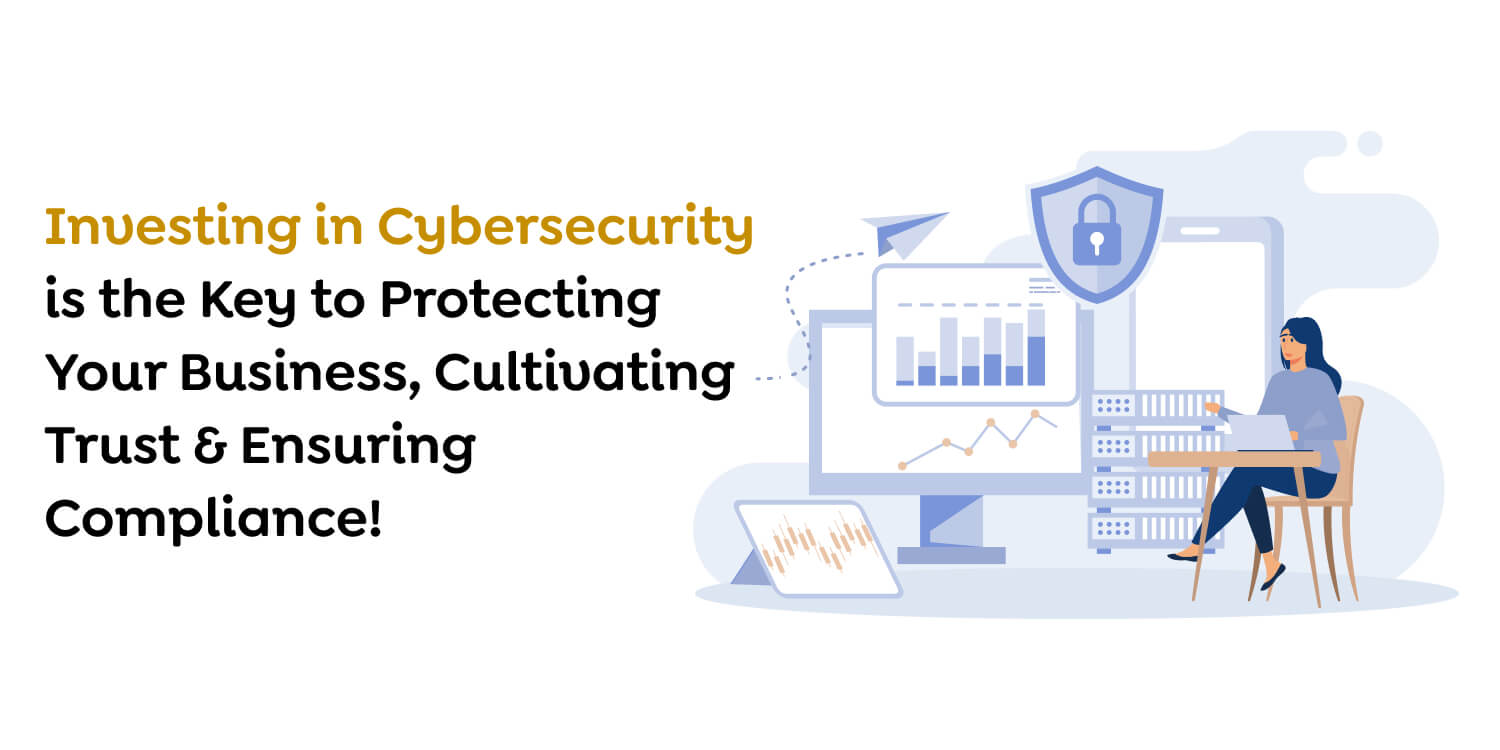
Cybersecurity strategies are essential for ensuring the safety and security of your company. Implementing the necessary steps to guard against cyberattacks can protect you from massive losses that could threaten your company’s long-term success. Investing in reliable encryption tools, antivirus security, secure networks, password and data encryption, backups, and employee training is crucial to protect the business from malicious cyberattacks.
Ransomware is a rapidly growing cyberattack that can affect an organization’s finances and operations. Proper cybersecurity practices can prevent most of these attacks. Ensuring you have a reliable antivirus program, educating employees on security measures against phishing attacks, and encrypting data are vital to safeguarding your business from ransomware-related attacks.
Customers want to feel confident when purchasing on your site. Investing in cybersecurity during an economic downturn will help ensure your customers’ information is secure and demonstrate that your company takes security seriously. Security measures like access control, multi-factor authentication, and strong passwords will reassure customers that their personal information is safe.
Compliance with data security regulations is vital for any company that handles employee or customer data. In addition to the significant fines for non-compliance, businesses that fail to meet regulations may suffer reputational damage and lose customer trust. Investing in cybersecurity solutions during a recession, including the proper techniques, tools, and training, ensures your company meets the standards required to avoid heavy fines from regulatory authorities.
Maximizing cybersecurity budgets during a recession isn’t easy, especially when funds are limited. However, implementing strong security safeguards is crucial for securing your digital assets from cyberattacks.
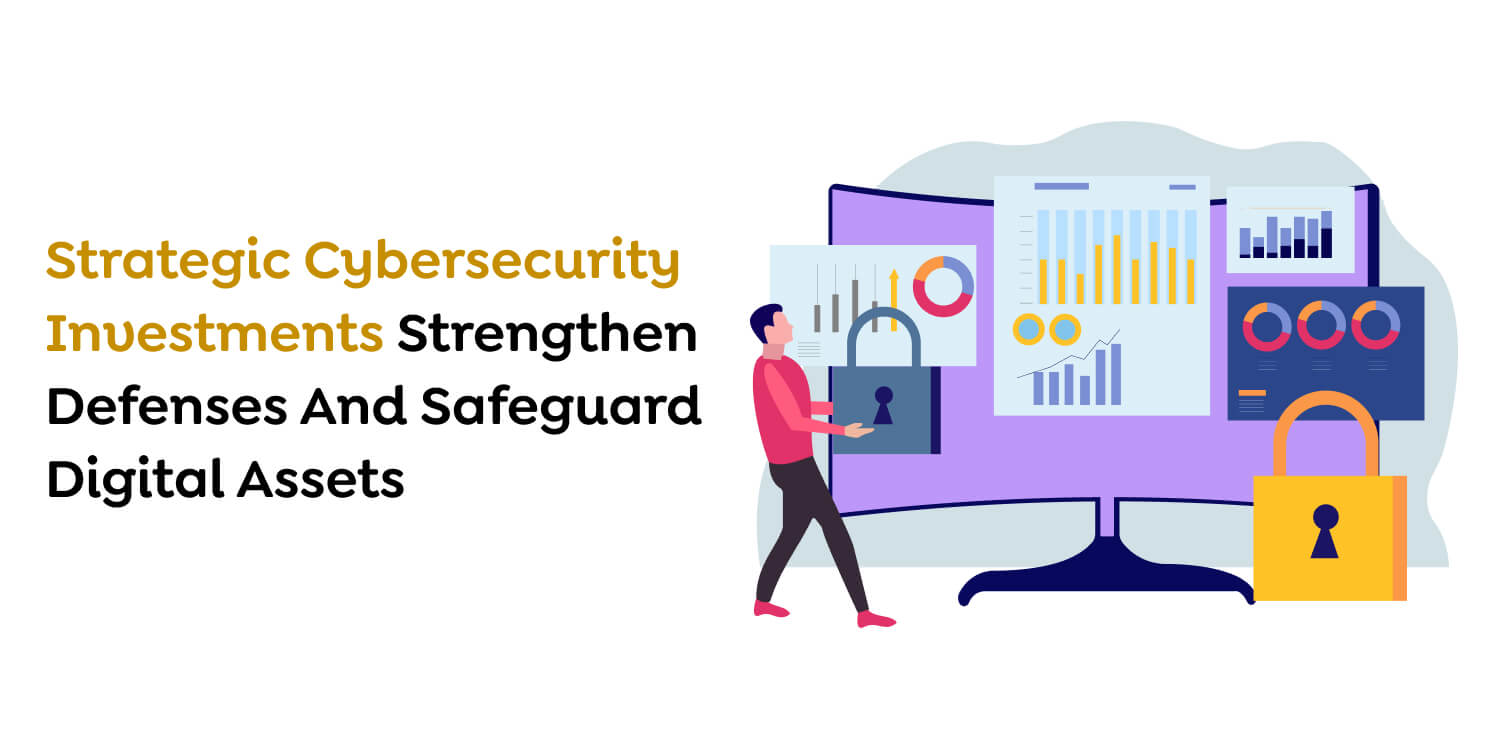
The first step in protecting your company from cybercrime is developing a successful cybersecurity plan and hiring a cloud consulting service. This should be accompanied by formal policies and procedures for identifying potential threats, taking appropriate action, and securing your data and systems. The strategy must also define roles and responsibilities for managing security measures, especially during a recession.
Secure authentication methods, such as multi-factor or two-factor authentication, help ensure that only authorized users can access data or systems. Creating strong, secure passwords using a combination of uppercase and lowercase letters, numbers, and symbols is essential for safeguarding systems against unauthorized access. Additionally, consider implementing biometric authentication to access critical data or systems. This adds an extra layer of protection, ensuring that only authorized personnel can access the system.
Regular security assessments are an essential cybersecurity step, especially during a recession, to help protect your company from cybercrime. This process involves using automated software to scan networks or systems for vulnerabilities that hackers and malicious actors could exploit. These scans should be conducted frequently, ideally every month or at least once a quarter, to ensure that updates and patches are current and that any identified threats are addressed promptly.
Employees who don’t follow security procedures or are unaware of potential dangers may unknowingly expose the company to attacks. To prevent this, you must invest in employee training and awareness programs, ensuring they know the latest security guidelines and how to protect your systems from threats. Some programs even offer simulation testing for phishing attacks and other exercises to help employees better understand cybersecurity techniques.
Companies should consider solutions that offer sophisticated analytics to identify potential risks and suspicious activities. These solutions should be capable of scanning networks for unusual actions, notifying the company if necessary, and providing a comprehensive review of the incident and the best course of action. Proactive monitoring is essential to protect your business from hackers by alerting you to their activities before they can cause any harm.
Cloud technology has transformed how businesses manage their IT infrastructure and security protocols. Its use in app development has also changed how entrepreneurs and developers create successful applications. Cloud-based solutions give businesses access to advanced cybersecurity options previously only available to large companies with massive budgets.
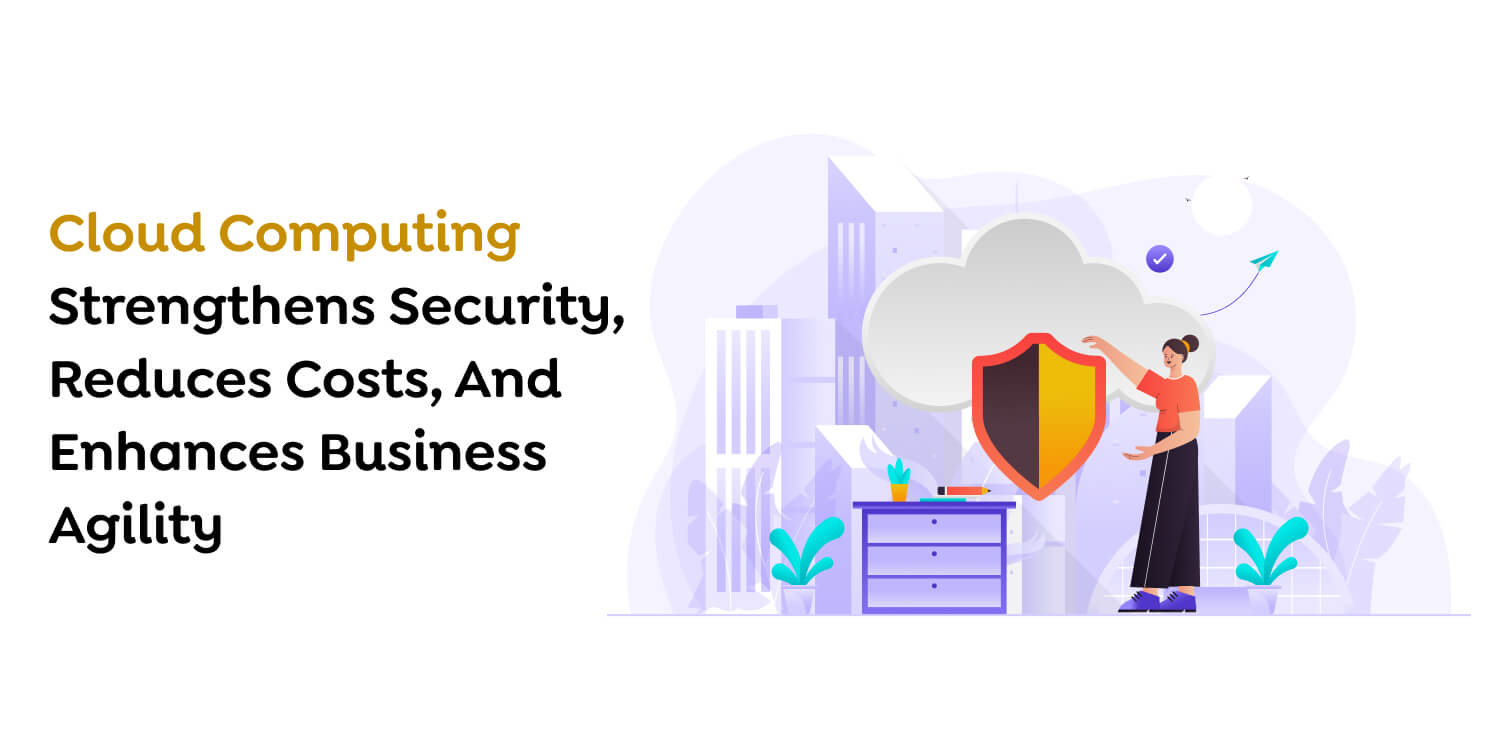
Below are a few reasons why cloud computing is an effective tool for managing cybersecurity during a recession, compared to traditional on-premise solutions:
Cloud-based solutions help companies reduce costs compared to traditional security devices or systems, as they require less hardware, software, and personnel to set up. Cloud solutions also offer flexibility, allowing businesses to adjust their plans based on the number of people or devices needing protection at any time.
Cloud services enable companies to quickly adapt their IT infrastructure and security procedures to changes in the external environment, making them more adaptable than conventional solutions. This is especially important during an economic downturn, when cyberattacks increase due to economic uncertainty and financial pressures on companies and consumers.
Cloud services are designed for quick expansion, allowing them to be easily scaled up or down based on the company’s demands. This is particularly useful when operations suddenly increase, as businesses do not need to invest in additional hardware or software to meet the demand.
With the rise of remote work, providing secure access to corporate networks and data has become increasingly difficult. Cloud consulting services address this issue by allowing remote users to access corporate networks and data securely via their devices from anywhere. This ensures operational continuity during periods when physical access is not feasible.
Unlike traditional security systems, cloud-based systems are built with advanced protection against threats. Cloud-based banking services, for example, ensure that business accounts remain secure. These services include encryption protocols, firewalls, malware scanners, and two-factor authentication. Cloud providers continuously monitor their services for unusual activity or threats that could jeopardize the security of client data.
IT service providers are essential in helping businesses maintain compliance and improve their security programs during a recession. Companies can reduce overhead by working with an IT service provider without sacrificing vital IT services. Outsourcing cybersecurity experts redirects funds and time, enabling company employees to focus on projects that require internal expertise during a period of limited resources. IT companies also typically offer regular monitoring and proactive security measures to safeguard the company’s information.
IT service providers help companies through downturns, enabling them to control their security posture and manage time and money expenditures. A particular fact is inevitable amid recession: cybersecurity and compliance are not an option; they are an absolute necessity. Incorporating compliance, constant monitoring, and the knowledge of IT service providers and cloud consulting services is essential for digital asset security and customer confidence.
Given the economic situation, your company must be ready for cyber attacks. Here are several tips to guard your business against cybercrime during an economic downturn.
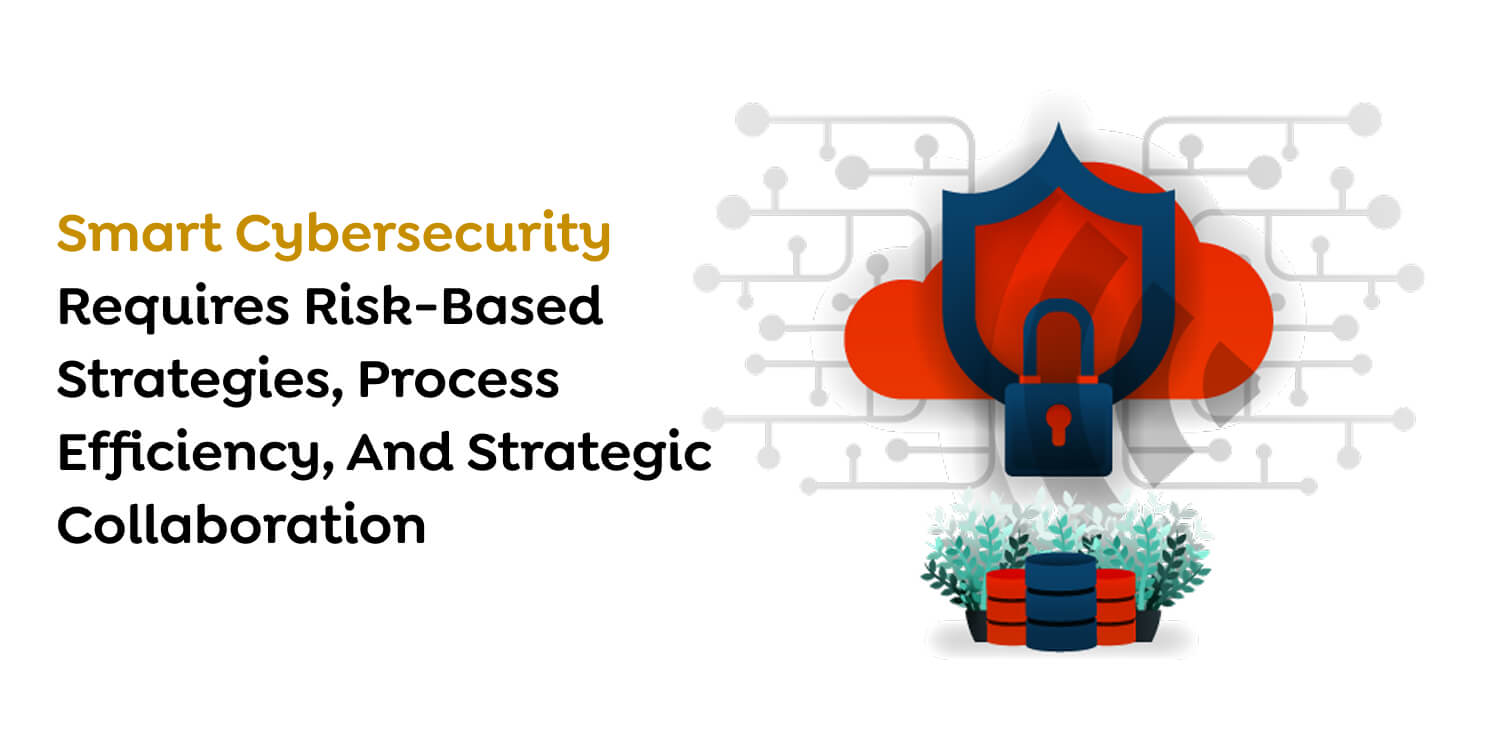
We shouldn’t try to safeguard everything in the same way. Even the most experienced IT teams often attempt to address every aspect simultaneously instead of coordinating resources according to risk. Re-examining your risk management strategy can increase focus, reduce expenditures, and lead to more efficient outcomes with fewer resources.
Be aware that some difficult compromises may need to be made. For example, your staff may need to shift their focus on security to specific hosting providers, apps, or cloud services. While this may not be ideal, it can significantly reduce expenses and provide far better security benefits than doing nothing at all.
Small IT organizations are often adequately staffed to survive major layoffs without significant harm. However, consolidating or transferring roles within a larger IT team can ease the workload on security personnel and allow them to focus on core risk management activities. This could involve shifting firewall management to network administrators, having system administrators handle updates and patching, or having your audit team assist with core compliance activities.
If consolidation alone isn’t enough to address your challenges, outsourcing talent can help fill gaps in your short-term plans. Many companies can manage your system or handle Tier I and II investigations and responses, allowing you to repurpose your existing resources.
The pressure of deadlines and heavy workloads often leads IT teams to accumulate unofficial processes and outdated documents. Formalizing these processes and updating these documents is an inexpensive, cost-effective solution to enhance operational efficiency. Testing the framework and technical aspects will help identify areas within your organization that could benefit from greater attention.
Can you delay purchasing the next-generation firewalls and devices to protect your cloud-based infrastructure? During economic hardship, the best approach is to focus on technology displacement and consolidation rather than acquiring new brands.
Many IT teams find that annual subscriptions and licenses consume a significant portion of the budget. There is more flexibility than you think. Companies often purchase top-tier equipment and software during periods of prosperity but fail to extract the full benefits from the latest technology when the economy is tough. The increasing strength of hardware and software solutions will make consolidation more feasible in 2025.
Don’t hesitate to speak openly with industry experts, colleagues, or peers to gain fresh perspectives, even when times are tough. The best technology partners (manufacturers and value-added resellers) have likely faced similar challenges. You can draw on their expertise to help you think creatively and maximize the return on your cybersecurity investment.
One of your business partners could help you decide which investments to postpone. Or an agency can renegotiate your licenses to ensure the long-term partnership remains intact. It’s impossible to know without opening the lines of communication.

There is a serious security risk during a downturn. Cybercriminals often use the anxiety and uncertainty associated with recessions to carry out attacks. Therefore, companies must be proactive about cybersecurity during these periods to avoid devastating consequences.
Cybersecurity cost reduction is not viable; companies must actively protect against crime. Businesses can strengthen their security by conducting regular security audits, establishing a security plan, educating employees about risks, and using MFA and encryption. Cloud computing services also offer businesses the most advanced security solutions. These solutions are scalable and allow organizations to recover from disasters. Thus, organizations can survive recessions and emerge safer.
Don’t leave your business vulnerable. Strengthen your cybersecurity with expert solutions. Partner with cybersecurity specialists today to safeguard your organization against evolving threats! Get in touch with Techugo.
Write Us
sales@techugo.comOr fill this form